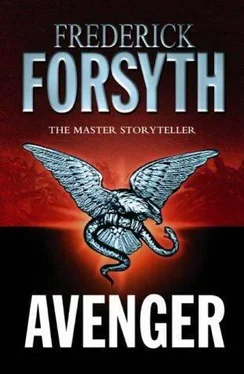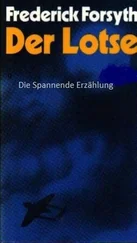Back in the States while all this was going on was a covert little unit called the Limited War Laboratory. Throughout the Vietnam War, they dreamed up splendid ideas to help the Tunnel Rats, though none of the scientists had ever been down a tunnel. They shipped their ideas over to Vietnam, where the Rats, who did go down in the tunnels, tried them out, found them gloriously impractical, and shipped them back again.
In the summer of 1970, the Limited War Laboratory came up with a new kind of gun for closequarter work in a confined space. And at last they had a winner. It was a.44 Magnum handgun modified down to a threeinch barrel so as not to get in the way, but with special ammunition.
The very heavy slug of this.44 was divided into four segments. They were held together as one by the cartridge, but on emerging from the barrel separated to make four slugs instead of one. The Tunnel Rats found it very good for close-quarter work and likely to be deadly in the tunnels because if fired twice it would fill the tunnel ahead with eight projectiles instead of two. They had a far greater chance of hitting the Vietcong.
Only seventy-five of these guns were ever made. The Tunnel Rats used them for six months, then they were withdrawn. Someone had discovered that they probably contravened the Geneva Convention. So the seventy-four traceable Smith amp; Wesson revolvers were sent back to the States and never seen again.
The Tunnel Rats had a short and simple prayer. "If I have to take a bullet, so be it. If I have to take a knife, tough luck. But please, Lord, don't ever bury me alive down there."
It was in the summer of 1970 that the Badger was buried alive. Either the GIs should not have been down there, or the B52 bombers out of Guam should not have been bombing from thirty-thousand feet. But someone had ordered the bombers, and that someone forgot to tell the Tunnel Rats. It happens. Not a lot, but no one who has ever been in the armed forces will fail to recognise a FUBAR-f*cked up beyond all repair.
It was the new thinking, to destroy the tunnel complexes by caving them in with massive explosions dropped by B52s. Partly this had been caused by the change in psychology.
Back in the States the tide of opinion was now comprehensively against the Vietnam War. The parents were now joining their children in the antiwar demonstrations.
In the war zone, the Tet Offensive of thirty months earlier had not been forgotten. The morale was simply dribbling away into the jungle. It was still unspoken among the High Command, but the mood was spreading that this war could not be won. It would be three more years before the last GI would board the last plane out of there; but by the summer of 1970, the decision was made to destroy the tunnels in the "free strike zones" with bombs. The Iron Triangle was a free strike zone.
Because the entire Twenty-fifth Infantry Division was based there, the bombers had instructions that no bomb should fall closer than two miles from the nearest U. S. unit. But that day the High Command forgot about the Badger and the Mole, who were in a different division.
They were in a complex outside Ben Suc, in the second level down, when they felt rather than heard the first "crump" of bombs above them. Then another, and the earth began to rock around them. Forgetting the VC, they crawled frantically toward the shaft going up to level one.
The Mole made it and was ten yards toward the final shaft up to daylight when the roof came down. It was behind him. He yelled, "Badger!" There was no reply. He knew there was a small alcove twenty yards ahead because they had passed it coming down. Drenched in sweat he dragged himself into it and used the extra width to turn around and head back.
He met the dirt pile with his fingertips. Then he felt a hand, then a second, but nothing beyond that except fallen earth. He began to dig, hurling the slag behind him but blocking his exit as he did so.
It took him five minutes to liberate his partner's head, five more to free the torso. The bombs had ceased, but up top the falling debris had blocked the air flues. They began to run out of oxygen.
"Get out of here, Cal," hissed the Badger in the darkness. "Come back with help later. I'll be OK."
Dexter continued scrabbling at the dirt with his fingertips. He had lost two nails entirely. It would take over an hour to get help. His partner would not survive half that time with the air flues blocked. He put on his flashlight and shoved the lamp in his partner's hand.
"Hold that. Direct the beam back over your shoulder."
By the yellow light he could see the mass covering the Badger's legs. It took another half hour, then the crawl back to daylight, squeezing past the rubble he had cast behind him as he dug. His lungs were heaving, his head spinning; his partner semiconscious. Then he crawled around the last corner and felt the air.
In January 1971, the Badger reached the end of his second tour. Extension for a third year was forbidden, but he had had enough anyway. The night before he flew back to the States, the Mole secured permission to accompany his partner into Saigon to say farewell. They went into the capital with an armoured convoy. Dexter was confident he could hitch a lift back in a helicopter the next day.
The two young men had a slap-up meal then toured the bars. They avoided the hordes of prostitutes but concentrated on some serious drinking. At two in the morning they found themselves, feeling no pain, somewhere in Cholon, the Chinese quarter of Saigon across the river. There was a tattoo parlour still open and available for business, especially in dollars. The Chinaman was wisely contemplating a future outside Vietnam.
Before they left him and took the ferry back across the river, the young Americans had each gotten a tattoo. On the left forearm, it showed a rat, not the aggressive rat on the door of the "hootch" at Lai Khe, but a smartass rat, facing away from the viewer but looking back over his shoulder with a broad wink, trousers down, a mooning rat. They were still laughing until they sobered up. Then it was too late.
The Badger flew back to the States the next morning. The Mole followed ten weeks later, in mid-March. On April 7, 1971, the Tunnel Rats formally ceased to exit.
That was the day Cal Dexter, despite the urging of several senior officers, mustered out of the army and returned to civilian life.
There are very few military outfits more secretive than the British Special Air Service, but if there is one that makes the tightlipped SAS look like the *Jerry Springer Show*, it is the Det.
The Fourteenth Independent Intelligence Company, also called the Fourteenth Intelligence or the Detachment or the Det, is an army unit drawing its recruits from right across the board, with (and unlike the all-male SAS) quite a proportion of women soldiers.
Although it can, if need be, fight with lethal efficiency, the main tasks of the Det are to locate, track to lair, survey, and eavesdrop on the bad guys. They are never seen, and their planted listening devices are so advanced they are rarely found.
A successful Det operation would involve tailing a terrorist to the main hive, entering secretly at night, planting a "bug," and listening to the bad people for days or weeks on end. In this manner the terrorists would be likely to discuss their next operation.
Tipped off, the slightly noisier SAS could then mount a sweet little ambush and, as soon as the first terrorist fired a weapon, wipe them out. Legally. Self-defense.
Most of the Det operations up to 1995 had been in Northern Ireland, where their covertly obtained information had led to some of the IRA's worst defeats. It was the Det who hit on the idea of slipping into a mortician's parlour where a terrorist, of either Republican or Unionist persuasion, was lying in a casket and inserting a bug into the coffin.
Читать дальше










